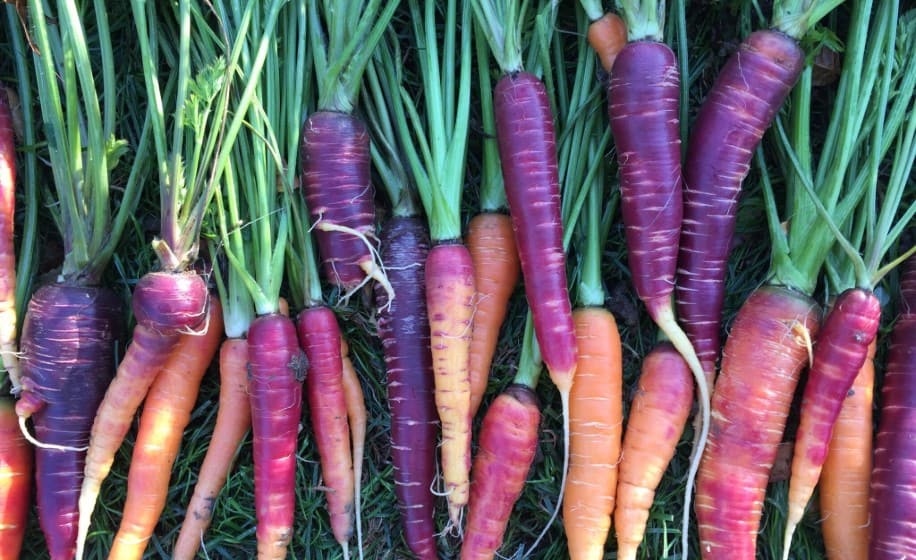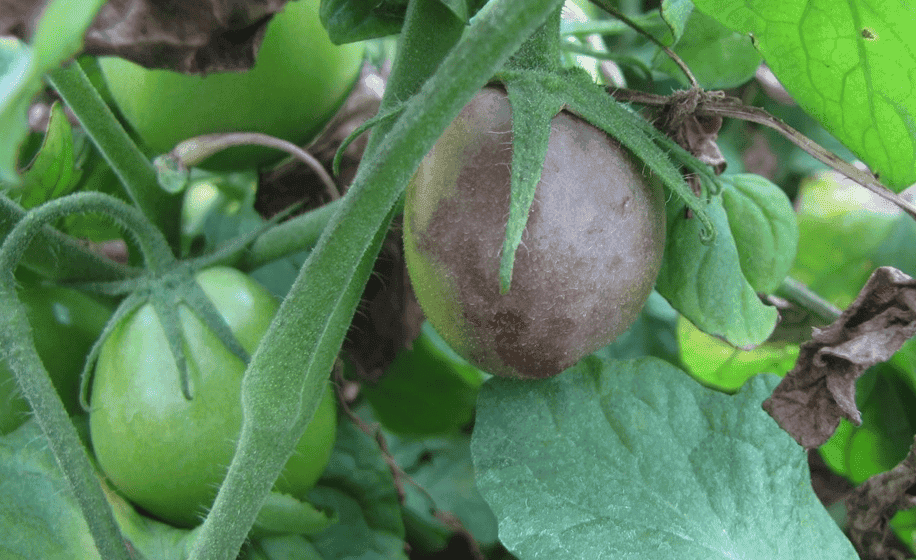Bringing farmers & researchers together
At OFRF, celebrating and strengthening the relationship between the researcher and the farmer is one of our greatest joys. We see these roles coming together and overlapping at Field Days – educational events often held on a working farm or ranch or at an agricultural research site. These events usually include demonstrations of specific management practices and equipment or highlight research methods and results. They are an excellent way for farmers to learn about new research findings, researchers to gain insight into the most pressing issues for producers, and networks to grow between them to continue these exchanges.
With our team spread across the country, we are eager to know more about field day events happening in various regions and to highlight more stories of these cross-pollination events. Do you host Field Days? What kind of events do you plan? Who attends them? And best of all – what are you researching? We want to see what you are up to!
Back in November, our Development Director, Leah Lawson, had the opportunity to attend a carrot trial field day at McHenry County College’s Center for Agrarian Learning in Crystal Lake, Illinois, the ancestral homelands of the Peoria, Bodwéwadmi (Potawatomi), Myaamia, Očhéthi Šakówiŋ, Hoocąk (Ho-Chunk), and Kiikaapoi (Kickapoo). Here’s what she had to say about the experience:
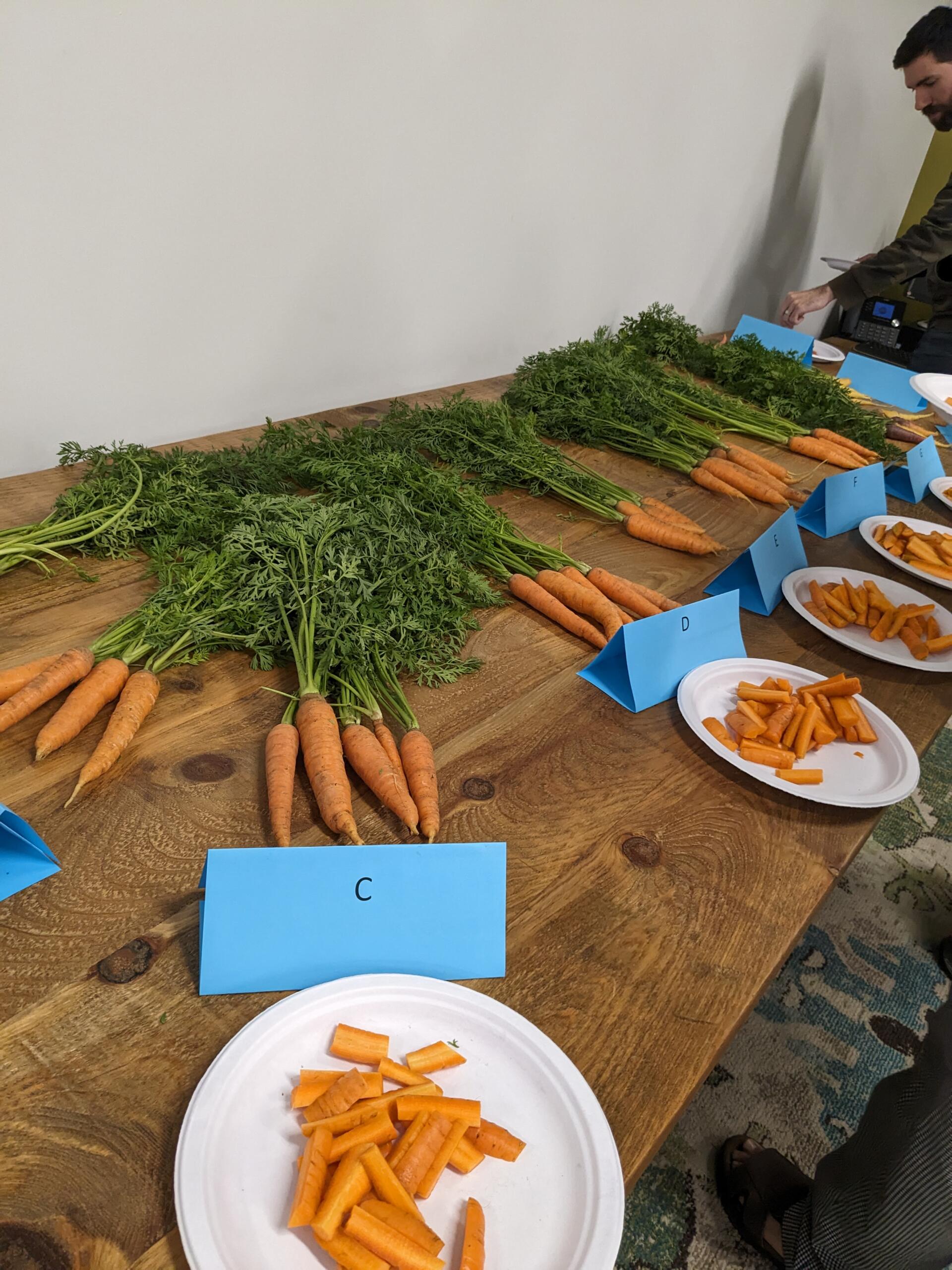
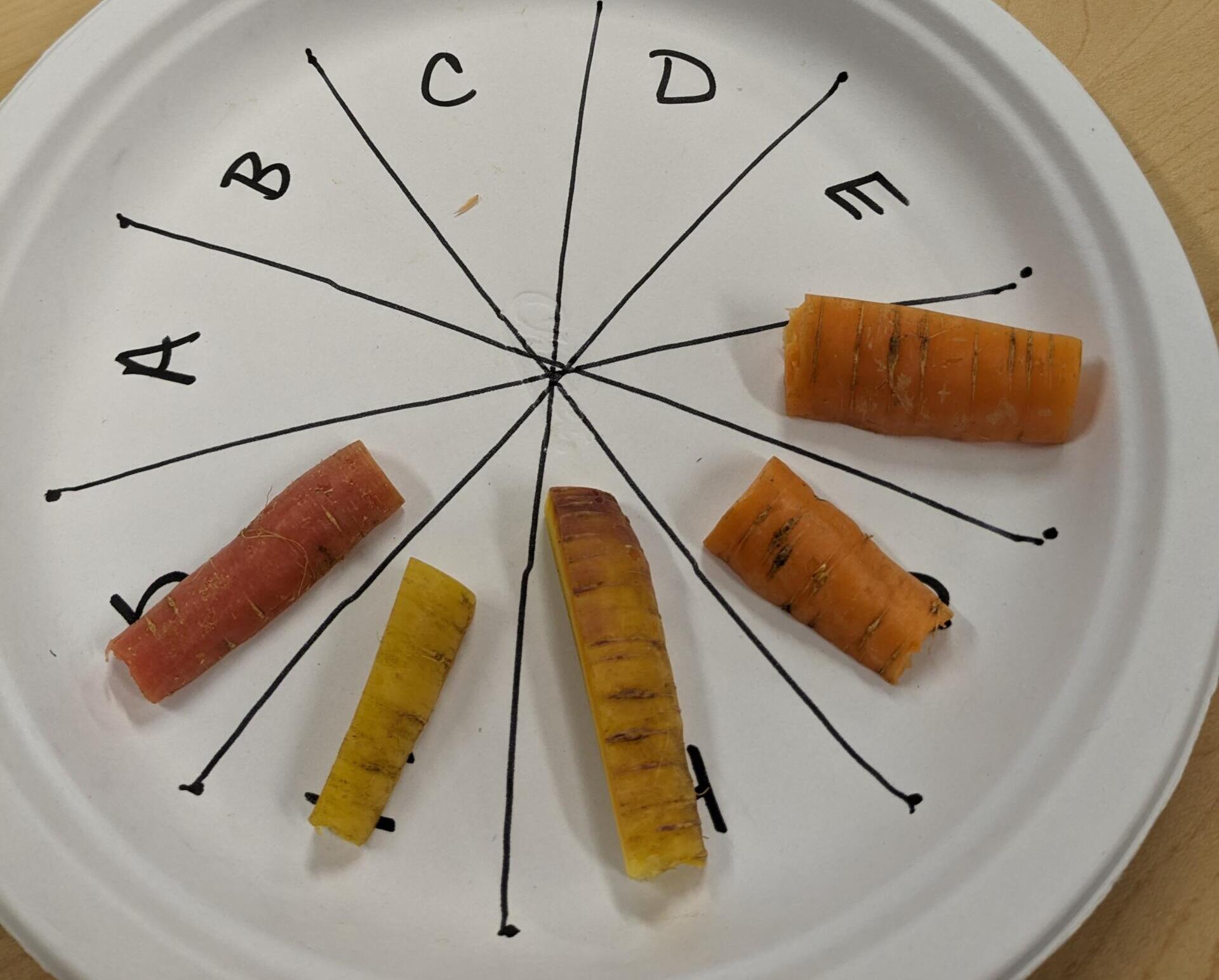
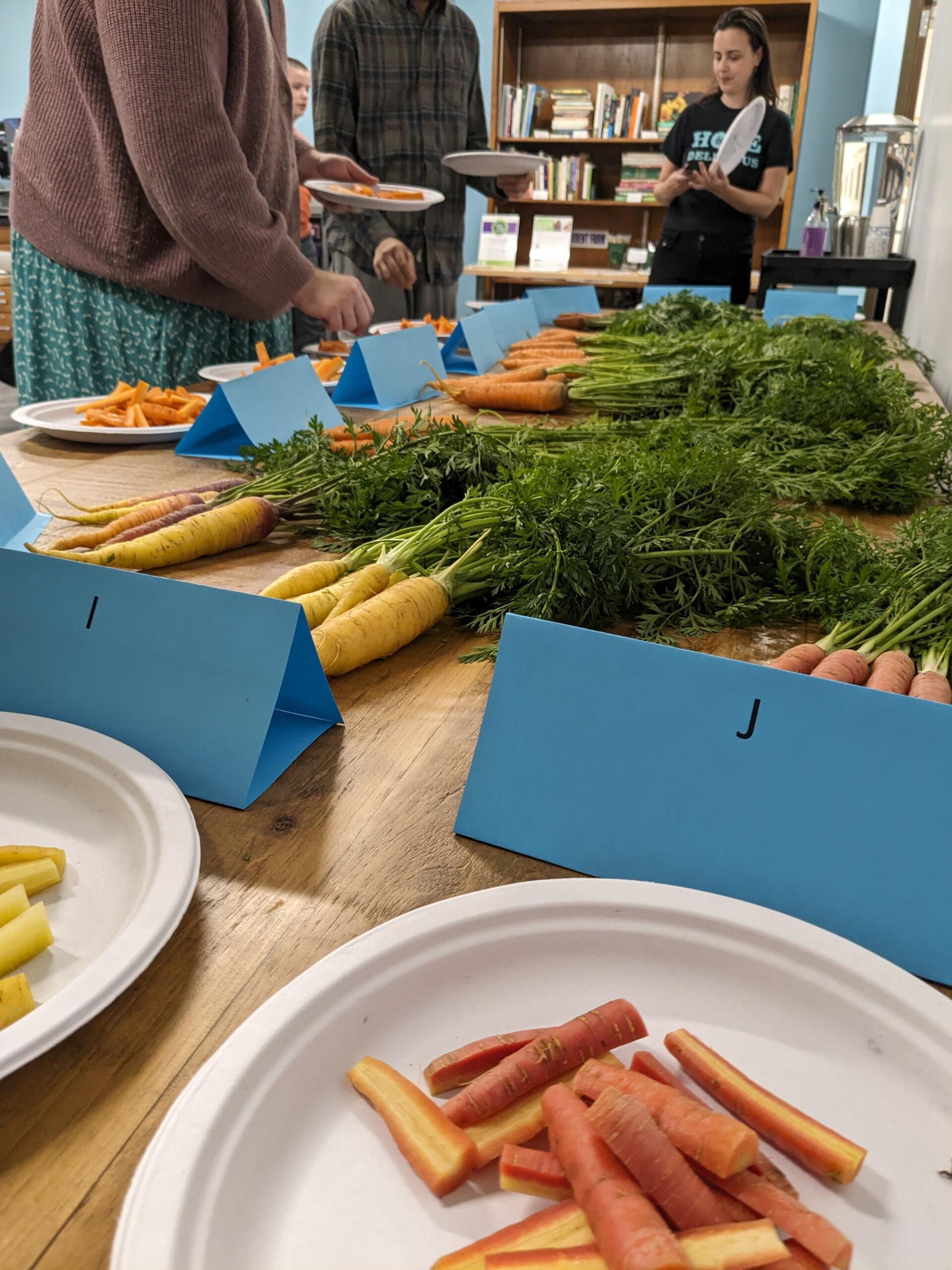
Carrot Trial Field Day
By Leah Lawson, Partnerships and Development Director OFRF
It was one of those beautiful fall days when the air was crisp and cool. As I drove out to the campus, the sky faded into a beautiful prairie sunset of purples, reds, and oranges – much like the colors of what was to be my favorite carrot of the night.
Our three hosts for the evening, Sheri Doyel, Micaela Colley, and Kim Sowinski, took us through the process and purpose of the project titled “Carrot Improvement for Organic Agriculture” (CIOA). We learned about domestication pathways and how culinary and cultural history blend together to create varieties throughout the world. We also learned about the process of carrot breeding. They only flower after the second year of growth, so harvesting the seeds is a long process. Each carrot variety has to be grown in a separate tent to keep them separate and prevent insects with unwanted pollen from getting into the mix.
Of course, the best part of the evening was tasting the carrots. We tried ten varieties grown on the MCC Student Farm, rating them each for taste, sweetness, texture, and color. Sheri and Kim collected all of this data to aggregate with the results from all the other farms participating in the study. Each variety will also receive ratings from the growers on soil health, disease resistance, and production rate. You can sign up on the Seed Linked website if you want to join a similar trial.
Unfortunately, my two favorite carrots were not great producers, so I don’t think I will find them at my local farmers’ market soon. However, I did get to take some of the leftover carrots. After returning home, I conducted another quick tasting with my kids, and we all marveled at their differences.
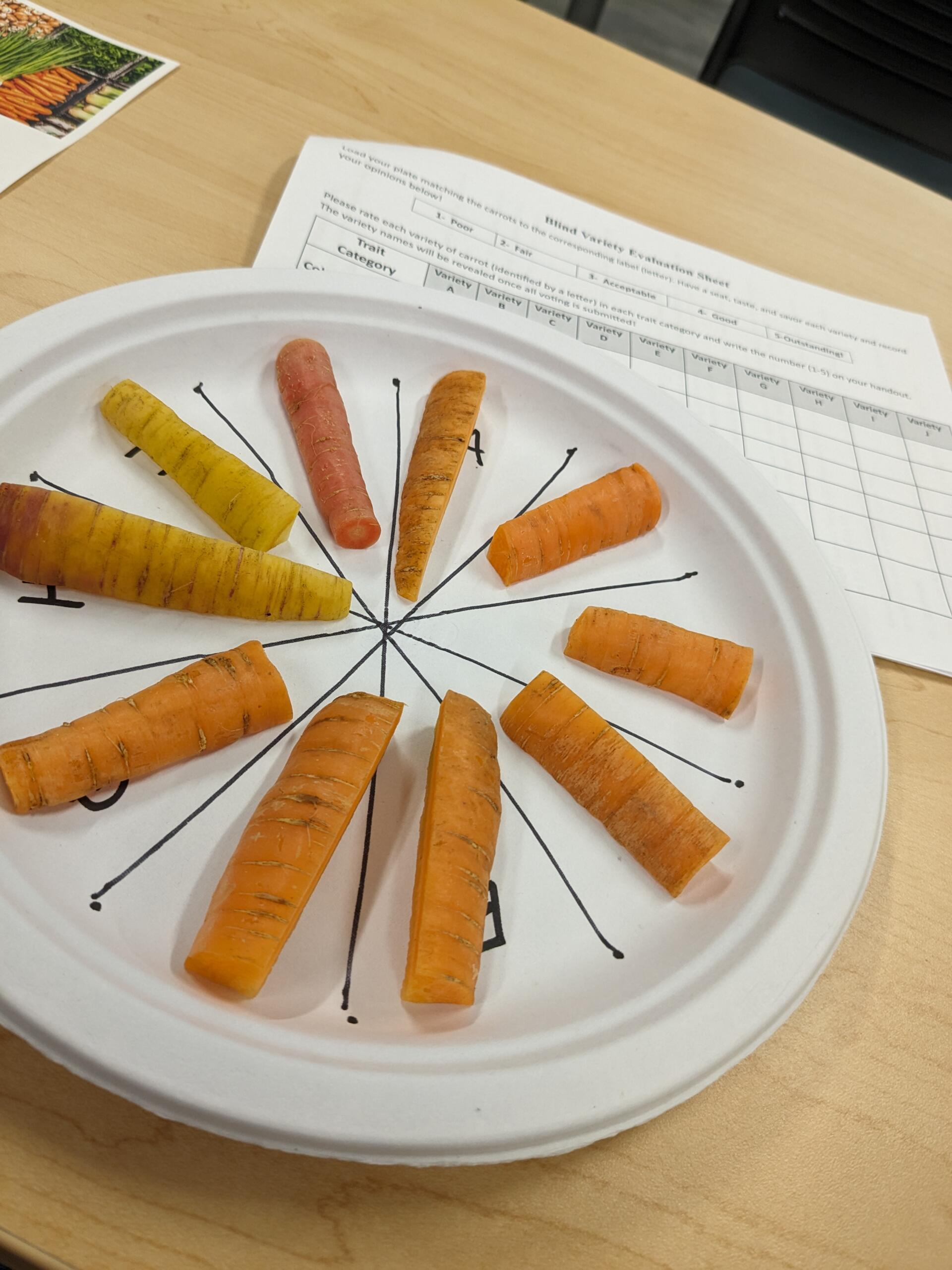
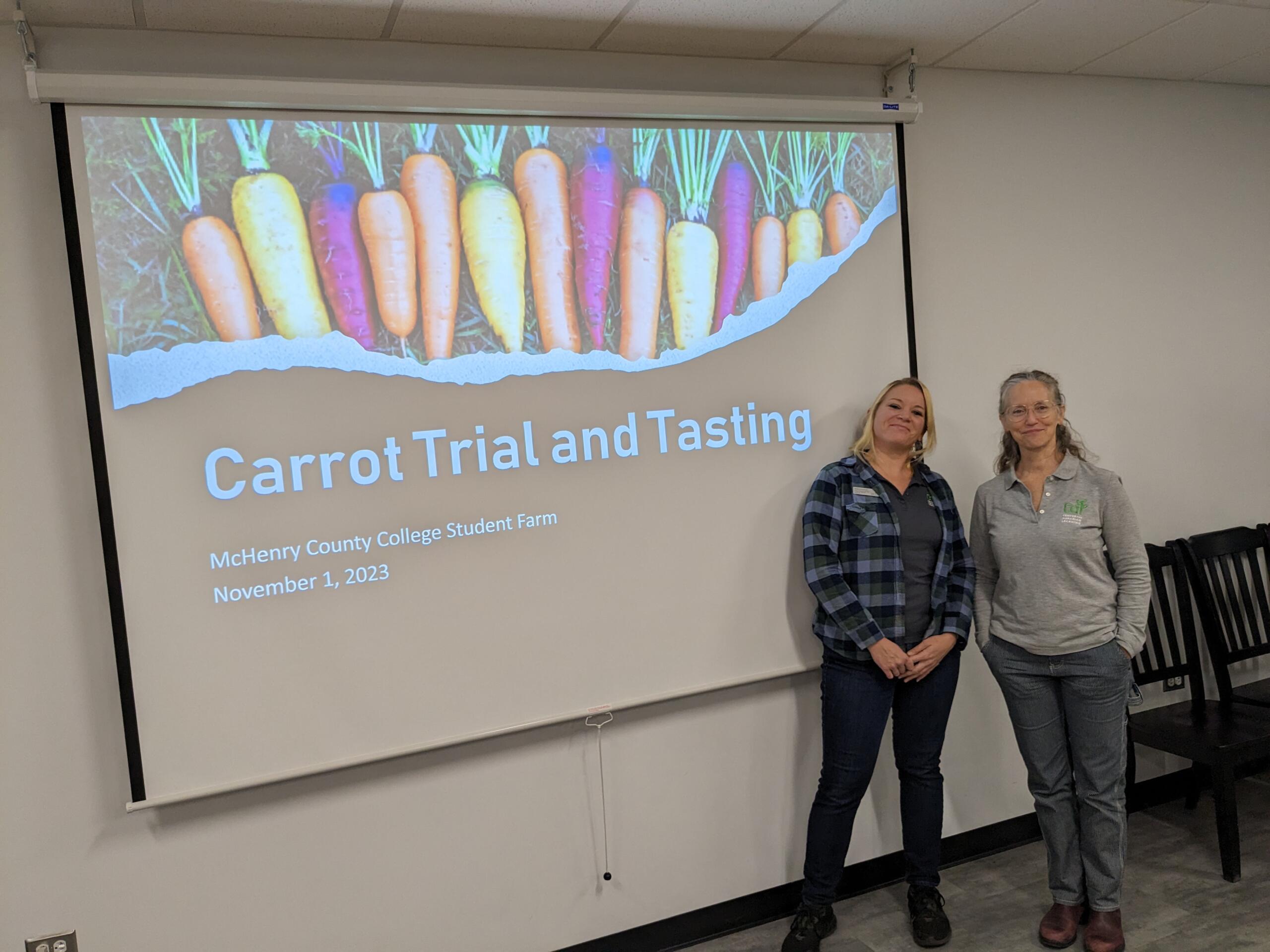
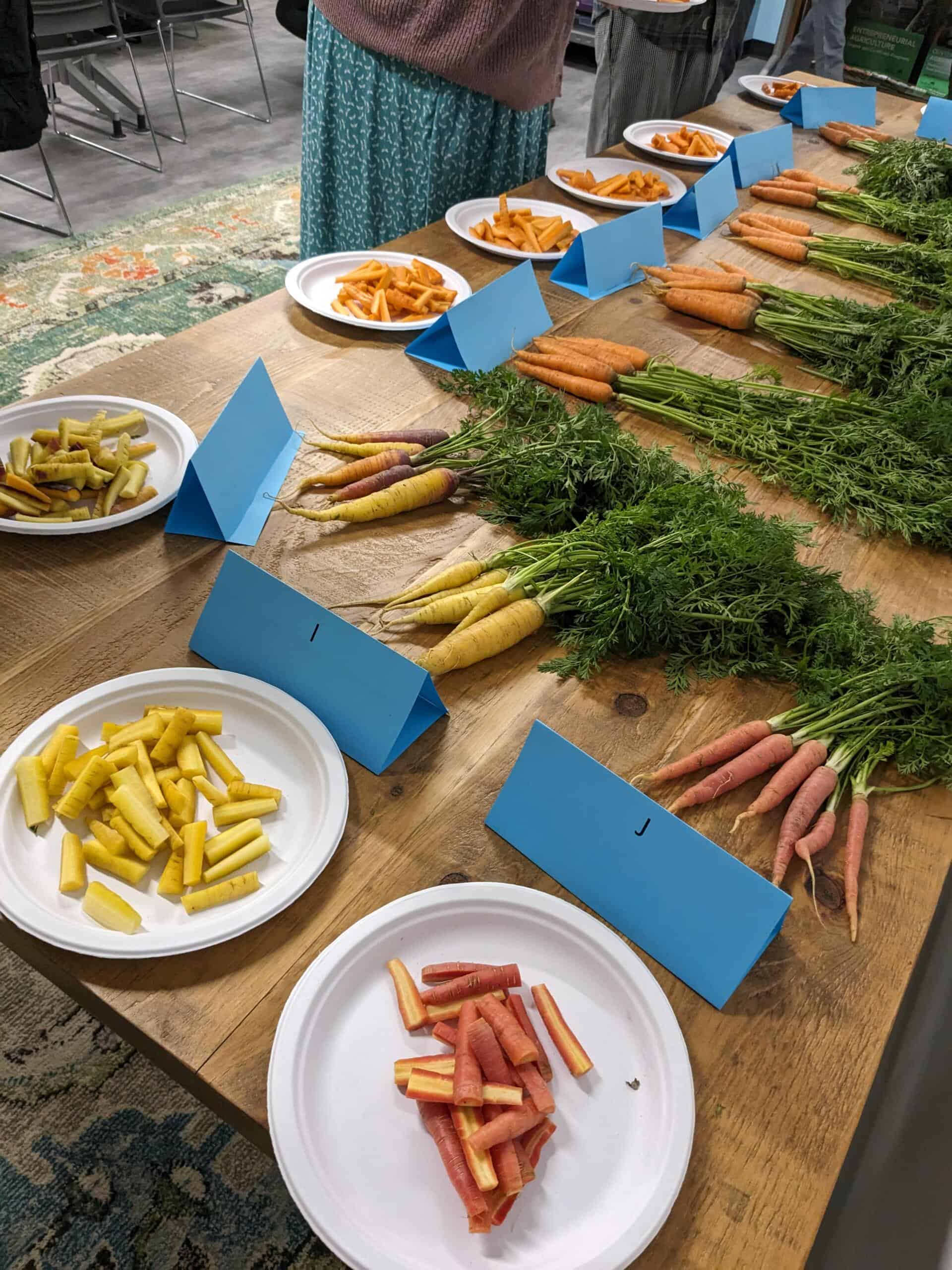
OFRF is working on building a database of Field Day opportunities around the country, so if you know of events like this, please get in touch! Let us know how you communicate or find out about research in your area. You can reach us at fieldday@ofrf.org
If you’re interested in learning how to host a Field Day, check out this Farmer Field Day Toolkit from SARE.
New disease-resistant carrot and tomato varieties being developed in partnership with organic farmers
OFRF just released two new research summaries highlighting this carrot trial and a similar tomato study. These two important, long-term organic crop breeding projects both focus on the interaction between soil microbes, genetics, and disease management, and both involve participatory plant breeding efforts between organic farmers and researchers.
Carrot Improvement for Organic Agriculture (CIOA): Leveraging On-Farm and Below-Ground Networks
Carrots are an economically important crop for organic specialty crop farmers, with 12% of US carrot acreage under organic management bringing more than $120 million in farmgate sales. Since 2011, researchers leading the CIOA project have been looking to improve carrot varieties for organic production. A central idea behind this work is that carrot varieties associate effectively with soil microbes for enhanced resilience to biotic and abiotic stresses, which can reduce the need for off-farm inputs. By conducting on-farm research and participatory carrot breeding projects, scientists and farmers work together to better understand below-ground networks and develop new varieties.
Tomato Organic Management and Improvement Project (TOMI): Part II
A diverse and virulent complex of fungal, watermold, and bacterial pathogens threaten organic tomato production. The Tomato Organic Management and Improvement Project (TOMI): Part II, led by Dr. Lori Hoagland of Purdue University, builds on previous research (TOMI: Part I), which found that soil and root microbiomes play a substantial role in mediating crop disease resistance. In this second phase of TOMI, researchers want to better understand the role of tomato genetics in promoting specific rhizosphere microbes that mitigate disease issues. The three-pronged approach investigates, 1) The potential for microbial biocontrol agents to promote disease suppression, 2) How plant genetics and microbes interact, and 3) The development of varieties with stable disease resistance using a farmer-participatory approach.



